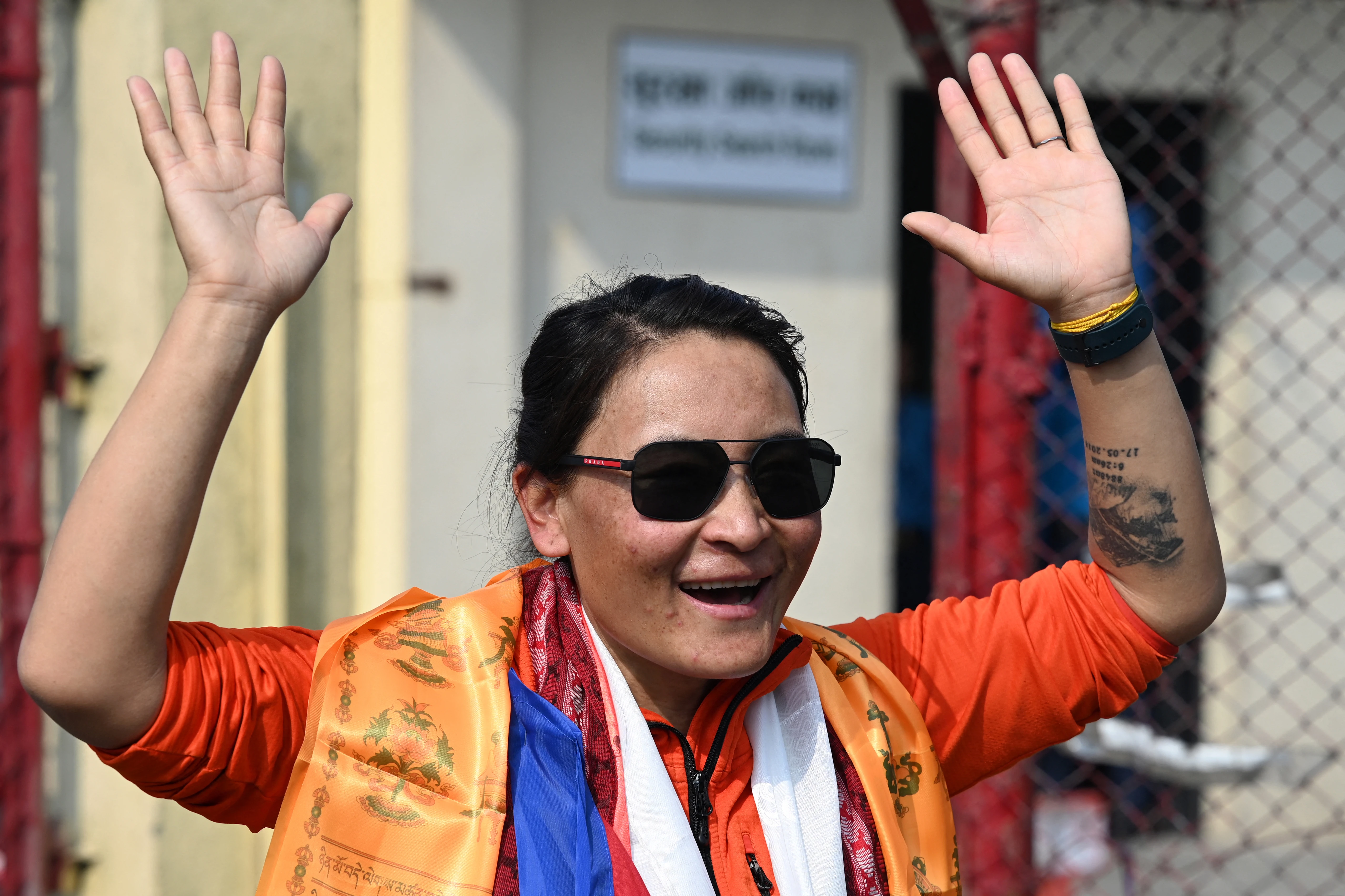For Nepal, says Everest record-setting female climber

Stay tuned with 24 News HD Android App

Nepal's Phunjo Jhangmu Lama, who smashed the record for the fastest ascent of Everest by a woman, said Sunday she is not chasing records but climbing for her country.
Lama on Thursday conquered the world's highest mountain in just 14 hours and 31 minutes -- a feat that usually takes other climbers days to rest and acclimatise.
The mountain guide and skilled helicopter long-line rescuer -- flying in dangling from a rope to extract injured climbers -- chopped more than 11 hours off the previous best that had stood since 2021.
Generations of men from Nepal, especially from the famed Sherpa community, have climbed the Himalayas, while their wives and daughters have traditionally kept the home fires burning.
But in a sign of changing times, a string of Nepali women are now climbing and breaking records.
"I don't know if my climb will inspire other women," Lama said, a mother of a daughter.
"But what I want to say is, that if we pursue this profession, there are many opportunities for women trekkers and climbers".
'Passion, work and everything'
Lama was back at base camp in an incredible 24 hours and 26 minutes.
But she said her motivation was to showcase the skills of Nepal's talented mountain guides, who risk their lives to bring clients from around the world to the top of the 8,849-metre (29,000-foot) peak.
"I am not chasing records", Lama said when she arrived in the capital Kathmandu, noting how Nepal was famed for its mountaineering.
"I, as a guide, was thinking: 'What can we do to show that to the world?'" she said. "Maybe we can show that we have talented guides, to bring mountaineers here".
Climbing Everest can be deadly, with at least four people killed on the peak this year, but the experience and training of Nepal's guides play a huge role in reducing the risk.
"I am a guide and work in the mountaineering -- this is my profession and work," she said. "The mountains are tied to my passion, work and everything."
Lama, who said she is 32, previously set the record in 2018, when she climbed Everest in 39 hours and six minutes.
That record was broken in 2021 by Ada Tsang Yin-hung from Hong Kong, who conquered the mountain in 25 hours and 50 minutes.
"I was very happy when I reached the summit," she said. "In my last attempt ...I faced problems along the route, but this time everything worked out."
Nepali climber Lhakpa Gelu Sherpa holds the record for the fastest ascent of Everest, reaching the summit in 10 hours and 56 minutes in 2003.
'Message of peace'
Her summit also coincided with festivals to celebrate Buddha's birthday.
"I feel blessed... I have grown up in Buddhist traditions and to have reached the summit on that day was special," she told AFP, draped in a white scarf and Nepali flag.
"In my mind, it was a message of peace and non-violence for everyone in the world."
Lama grew up in the Tsum Valley in Nepal's Gorkha district -- a remote rural area that includes Manaslu, the world's eighth-highest mountain.
She spent her childhood with her grandfather herding yaks.
"I was born in the mountains and grew up in the mountains... but our community is not very involved in mountaineering," she said.
In 2014, she started training for rescues and met other climbers, sparking a passion.
She began climbing in 2016, going on to scale peaks including Manaslu and the other Himalayan giant Cho Oyu, and also trained in the Swiss Alps.
"She is a very strong climber," her guide Tendi Sherpa of Tag Nepal told AFP. "She loves the mountains. The record she set is amazing."
More than 600 climbers and their guides have already reached the summit of Everest after a rope-fixing team reached the peak last month.
Most have emptied the tented city at its base camp, with only a few teams aiming for the summit next week.
Nepal has issued more than 900 permits for its mountains this year, including 419 for Everest, earning more than $5 million in royalties.
This year, China also reopened the Tibetan route to foreigners for the first time since closing it in 2020 because of the pandemic.
Nepal is home to eight of the world's 10 highest peaks and welcomes hundreds of adventurers each spring, when temperatures are warm and winds typically calm.
